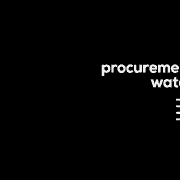|
Getting your Trinity Audio player ready...
|
Image by Freepik
Corruption Watch’s recent Procurement Risk Trends 2023 report records the alarming rate at which state organs use the practice of deviations and contract expansions in public procurement, and not always for good purposes.
While it clarifies that there may be perfectly valid reasons for deviating from a prescribed procurement procedure or for expanding an existing contract – for instance, where a unique piece of scientific equipment is manufactured by only one supplier – the report further notes that the use of deviations and contract expansions can raise red flags and indicate a lack of planning for procurement requirements.
In the unique set of cases where deviations are unavoidable, an entity may conclude that there is no point in inviting public tenders for the supply of such exclusive equipment even though the value of the envisaged acquisition may be far above the threshold for the mandatory use of open bidding methods of procurement. The report notes: “Using the open bidding procedure would in fact be a waste of public resources since it would not generate competition among suppliers. Instead, under such circumstances, procurement rules allow the relevant organ of state to deviate from the open bidding procedure and to contract directly with the sole supplier of the equipment.”
It is also important to note that deviations and contract expansions do not necessarily indicate any abuse of the public procurement system, the report states, highlighting that there are cases in the public procurement environment where valid reasons exist for the use of both deviations and contract expansions.
However, deviations from procurement regulations have been a cause for concern for regulatory authorities, particularly in instances where they involve large-value spending by government entities. The state capture commission, chaired by Chief Justice Raymond Zondo between 2018 and 2022, heard of a number of such cases where the leadership of state-owned entities such as South African Airways, Transnet, and Eskom circumvented policies meant to guard against corruption by engaging in practices such as deviations, confinements, and in some cases, parcelling – the latter involving breaking up large-value contracts into smaller ones to bypass the scrutiny associated with them.
One notable example of where deviations were often used as a method of procurement is in the case of Transnet. In evidence heard in 2019 and later in 2021, current and former Transnet executives outlined circumstances in which the leadership of the state-owned entity at different times between 2011 and 2015 leaned on deviations, scorning open tender processes, even for high-value tenders that were found by the commission to have been irregularly handled.
Zondo wrote in his final report: “The capturing of Transnet involved the restructuring of governance and weakening of internal controls. In particular, the centralisation of approval authority at the level of the board and senior management in the hands of a few executives had the effect of shielding procurement processes from the scrutiny of a wider group of Transnet officials who could have detected and reported irregularities.
“Deviations from the open bid process helped to facilitate capture. The procurement mechanism that applies by default within Transnet is the open-tender process. Confinements are a deviation from the general rule of open tenders.”
Corrupt procurement practices at Transnet
It was through confinements that the R54-billion locomotives tender that covered the bulk of the Transnet evidence was realised. Zondo found that former GCEO Brian Molefe, former GCFO Anoj Singh, and later, Molefe’s successor Siyabonga Gama, were instrumental in the irregular nature of the locomotives procurement process.
“Corrupt procurement practices were sustained by bringing approval authority or high-value tenders under centralised control and the weakening of the internal controls designed to prevent corruption. Collusion between individuals inside and outside of Transnet, as part of a co-ordinated effort to access and re-direct funds and benefits in substantial procurements, resulted in the strategic positioning of particular individuals in positions of authority.”
The commonalities among the contracts that were realised through deviations at Transnet included favouring companies like advisory firms McKinsey and Company and Regiments Capital, which were associated with the Gupta enterprise in the period under review. Zondo found that by side-lining competent units within Transnet such as its treasury, the senior executives made way for the entry of external advisory services procured from McKinsey, Regiments, and later Trillian. Consequently, the fees derived from contracts related to Transnet’s locomotives procurement processes went on to “be shared with companies established and controlled by Mr Salim Essa, an associate of the Gupta family, and laundered to the Gupta enterprise”.
Debarred suppliers list still empty
Although the CW report does not conclude that any of the deviations it records were irregular, nor does it name private suppliers who may have benefited from deviations entered into by public entities, it does draw a link between the trend on the one hand, and the lack of management of two mechanisms referred to respectively as the register for tender defaulters, and the database of restricted suppliers.
“When an entity has been endorsed on the register, it will be debarred from winning state contracts for a period of between five and 10 years. The term of debarment is set by National Treasury once the court has ordered endorsement, and the register for tender defaulters is publicly available. An organ of state is prohibited from awarding a contract to an entity endorsed on the register,” notes the report. Such suppliers may face debarment for any number of reasons, including failed contracts or other irregularities.
At the webinar launch, procurement expert Professor Geo Quinot of Stellenbosch University, who was part of the research process for the report, said of the register for tender defaulters: “The surprise is that this list is empty at the moment… there’s only ever been two entities since this thing came into existence. That in itself, I think, is reason for concern and something that one should continuously interrogate. Why is it that we are not seeing criminal prosecutions of bad suppliers, resulting in listing on this register?
“The one that is actually being used is the database of restricted suppliers. It is an administrative structure, so it means you end up on this list not by means of a court finding, but by way of a procuring entity identifying some wrongdoing, and then listing you on this central database.”
The report data show a massive increase of 247% from 2021 to 2022/23 in reported deviations, representing a cause for serious concern when set against the backdrop of generally decreasing deviation numbers since 2017. “That in itself is a red flag and one must ask questions about this, and this calls for interrogation to see whether there are good reasons for more deviations being noted or whether there is some abuse going on there,” Quinot added.
In the case of Transnet, one of the reasons it became vulnerable to capture was that although it had an extensive governance structure on paper, it applied only to tenders under a certain value, and on many occasions the signing off on contracts occurred without following the stipulated processes of evaluation. This was according to the parastatal’s head of governance, Peter Volmink, who testified before Zondo in May 2019.
“State capture happens through a process that is designed to override controls. When we talk of deviation from the open bidding process…this helps to facilitate capture, it enables those who have all sorts of nefarious motives to do what they wish to do,” he said at the time.
Remedies
Several remedies exist to help curb the practice of deviations pursued under dubious circumstances. Through the Preferential Procurement Regulations of 2022, under the Preferential Procurement Policy Framework Act, there is provision for sanctions where a bidder has submitted false information to secure the tender, which may include disqualifying the bidder from the tender process, cancelling a contract, and claiming damages. Similar remedies are provided for under the Treasury Regulations and instructions issued under the Public Finance Management Act.
In his general recommendations for the professionalisation of the public procurement sector, Zondo said that for public officials working in supply chain management and other procurement-related fields to be empowered, the legislative framework that guides their functions must be reformed. Government should consider establishing a single professional body to which all procurement officials will belong and account.
“Such professional body will fix the qualifications and the necessary training and experience necessary for membership of the profession. Such training and qualification to include high standards of integrity and a commitment to resist mismanagement, waste and corruption.”







